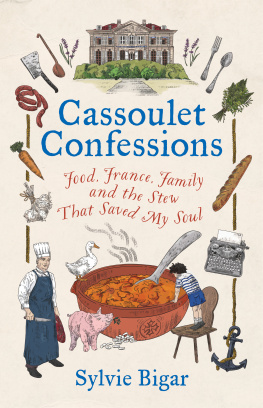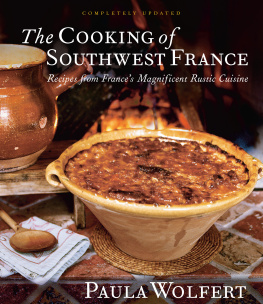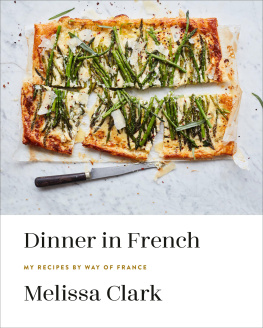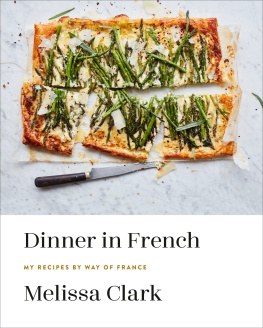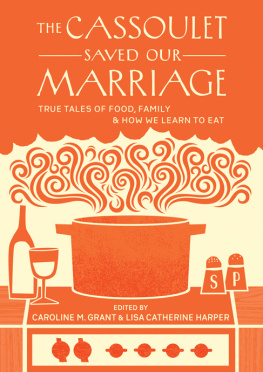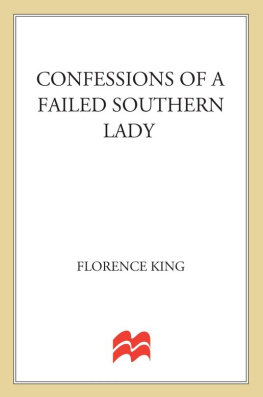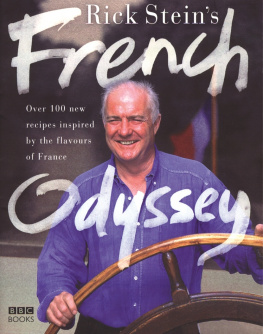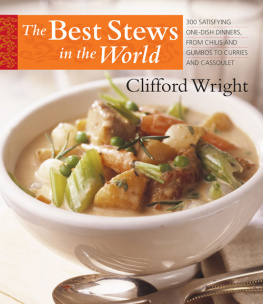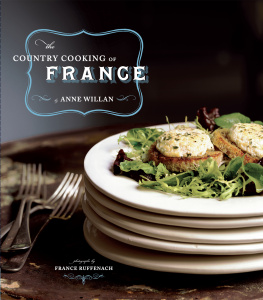

WE NEVER ATE CASSOULET AT BEAU-CHAMP, MY SWISS childhood home above Lake Geneva. We didnt eat lentils either, or any other mundane legumes for that matter, but Joachim Martinez, our loyal Spanish butler, served us plenty of haricots verts, glistening with French butter and dotted with caramelized shallots. Some days he wore his royal blue jacket with gold buttons, some days he wore the red, but he always wore his white gloves as he slalomed swiftly around the oval table.
Joachim, my mother would say, help the little one, please.
Oui, madame.
That little one was me, age seven or so, with my round face and corkscrew curls. I had recently graduated from eating in the upstairs kitchenette, with its red linoleum floor and arthritic dumbwaiter, to the dining room, where I sat proudly to the right of my mother and across from my three older sisters.
Joachim, stocky, with warm brown eyes and a bushy mustache vaguely reminiscent of Francisco Francos, held his right arm behind his back when he waited on us, as any proper butler would. His hefty left palm cradled one of the oval silver platters he shined regularly, and as he approached my left side, he would bend his knees to lower himself. Right hand wielding both utensils with the precision of a surgeon, he would serve me, lest I dropped a morsel on the oriental carpet. He knew I preferred the crispy chunks near the top of the lamb bone, the chicken drumsticks wrapped in brittle skin, and the fluffy knpfli his wife Carmela made from my maternal grandmothers recipe. Aware my parents insisted I try everything, he would pick for me the thinnest endive, which Id try to wedge under the bones, and only a sprinkling of petits pois, whose texture always made me gag.
Dinner was a serious affair. Not so much because my parents cared about how the food tasted (more on that later), but because the dining room felt as convivial as a pretty morgue. Decorated with wood paneling painted off-beige and featuring a centuries-old parquet floor, the room had been styled by my father with furniture and objects he inherited from what we all called Rue Saint-Victor, the mansion on Saint-Victor Street where he grew up, about ten miles away in downtown Geneva.
Often bored by the conversation between my parents, I entertained myself by detailing the eighteenth-century Meissen porcelain birds that adorned the walls. Each panel held about three of them, for a total of twenty-one. None seemed happy or chirpy quite the opposite. One was picking at a smaller dead one, another gnawed on a worm, and the one across from me was chasing a squirrel. The birds looked mean and ominous.
I hated those damn birds, my mother would say years later, as if I should have always known that. But I didnt. There was much I didnt know then.
Built on a hill in 1730 by a Swiss nobleman, our neoclassical stone chteau, with its sculpted gable and gray shutters, occupied about 15,000 square feet, and was divided into three floors. It overlooked a vast garden separated into two distinct parts by a low stone wall lined with red roses. Every day, our gardener fought to keep the formal upper area meticulously clean-cut. Week after week, he battled against the foolish weeds on the gravel paths that lined the gardens; year after year, he braided climbing roses over undulating wrought-iron arches and kept the ancient water basin impeccably rimmed with rows of lavender. But below, the field for which the house was named (beau champ means beautiful meadow) cascaded towards the lake into wilderness. It was the domain of the ladybugs and the bees, where tall grasses and wildflowers bowed to the morning breeze, where I ran free and where I hid. There, the white bottom of the clover flower tasted sweet and I could make the swollen buds of the campions explode like firecrackers in my able hands.
In my favorite imaginary game, I was a squirrel, stocking provisions away for winter. I collected a whole array of leaves, acorns, unripe chestnuts, and white pebbles I would hide in the numerous caches the garden provided. I kept mental lists of what was where: between the roots of the oldest pine tree, under a funny-shaped stone or a cluster of ivy. Was I squirreling away my childhood for fear of forgetting it, or was I actually afraid Id go hungry?
At the head of the table, my father, trim and tanned, faced the two monumental windows.
Look at the way Norbert steers, he whispered one day, frowning, his piercing hazel eyes on the lake where a lone sailboat flew, its spinnaker billowing in the north wind.
Oh, really? How can you tell from here? asked my mother, not looking.
My father had been sailing competitively every weekend since he was a teenager and, even from miles away, he could recognize who steered which craft and how. His first boat was built at age eight using a lone board, a broom, and a sheet hed borrowed from the housekeeper at Le Clapotis, the lake chalet his parents owned, only a few minutes walk from our own home on the hill.
He stared at my mother and didnt respond. At the beginning of their forty-year marriage, hed tried to share his passion with his young Parisian bride, but after a few outings during which my dainty, intellectual mother became seasick, she decided shed rather be reading.
I watched the lake, as alive as the ocean. Across the water, the countryside seemed to stretch up in escalating tiers towards the French pre-Alps. Above, the steady snowy summit of Mont Blanc, the highest peak in Europe, floated high, placid, above our lives.
If rays of sun deigned to enter the dining room, my father would often shudder. Quick, Joachim, close the curtains, hed cry, seriously upset. He loved the intricate eighteen-century parquets and the oriental rug, and feared the suns deadly rays, even though once the yellowing anti-sun curtains were drawn, the room felt more like a funeral parlor.
Jeanine, elbows off the table! hed yell suddenly. Two points!
Her clear blue eyes shining with fury, my oldest sister would stare at him. I am almost twenty and youre going to send me to my room if I get to three points?
Hed laugh, but the tension was palpable. Our father was obsessed with manners. He had invented a game he played with my three sisters before I was born in which any infraction resulted in a point. Three points and you would be sent to your room without dinner.
When I was born, my sisters were already eight, ten, and twelve years old: they never pardoned me. By the time I sat at the dining table with them, they were young adults, but Id heard about many meals where Jeanine and France would finish the evening hungry, sobbing in their rooms. I was often threatened with the points game, but I was never sent away. I never went hungry.
After they left home Jeanine to get married, France to live her Israeli kibbutz dream, and Michle in a straightjacket, en route to the mental hospital I was mostly alone at the table with my parents.
Was that when I started to notice that my mother ate differently from us? That while we lapped a cream of asparagus, she sipped clear vegetable broth; that her sole filet was steamed while ours was fried?

AS I PREPARED FOR THE TRIP, CURLED UP IN MY HOME OFFICE in New York, I googled Eric Garcia, co-founder of the
Next page
